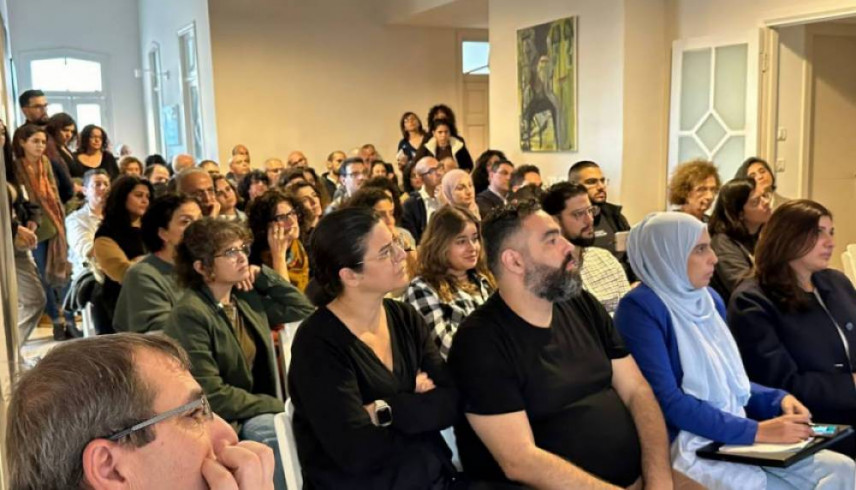
On Friday, December 15th, 2023, an academic conference titled “The War on the Gaza Strip: Political, social and cultural approaches” was held at the Majdalani Hall in Haifa, Israel. The event was organized jointly by Mada al-Carmel – Arab Center for Applied Social Research, Baladna - Association for Arab Youth, and the Arab Culture Association.
Poet and researcher Ali Mawasi opened the conference, inviting those assembled to observe a minute’s silence for the souls of those who have been killed in the Gaza Strip, and throughout Palestine. He was followed by poet Asmaa Azaizeh, who read passages published during the war on Gaza composed by poets including Khaled Juma, Yahya Ashour, Nour Balousha, and Haidar al-Ghazali.